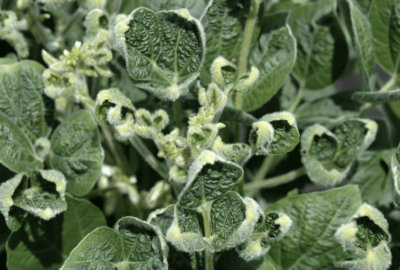A volatile pesticide is causing problems for farmers in Illinois for the third straight year. Dicamba, a herbicide for soybean crops developed by Monsanto, is again causing crop damage throughout the state – and has been doing so since 2017. Each year, dicamba has drifted off-target and damaged millions of acres of non-resistant soybeans, specialty crops and other plants.
Farmers in Illinois, the nation’s leading soybean producing state, have reported record levels of crop damage caused by pesticide drift in 2019, with 590 dicamba-related complaints as of August 23rd. Complaints have almost more than doubled since last year. In response to suspected damage nationwide, the U.S. Environmental Protection Agency has increased the restrictions on the dicamba’s usage each of the past two years, and many states have imposed additional restrictions, including requiring increased training and implementing cut-off dates after which the chemical cannot be sprayed. Dicamba has been sprayed since the 1960s but was not widely used because of many plants’ high sensitivity to the weed killer, as well as its propensity to drift. Makers of dicamba — such as BASF North America and Bayer, which has since bought Monsanto — are aware of the issues but touted the success of the new technology. The company is facing ongoing lawsuits that allege dicamba has damaged crops and plants not engineered to withstand it.
This year in Illinois the cut-off for spraying the herbicide was extended due to wet weather to July 15th. Bayer says the hope to continue research and development so that the issue can resolve itself further down the road.




